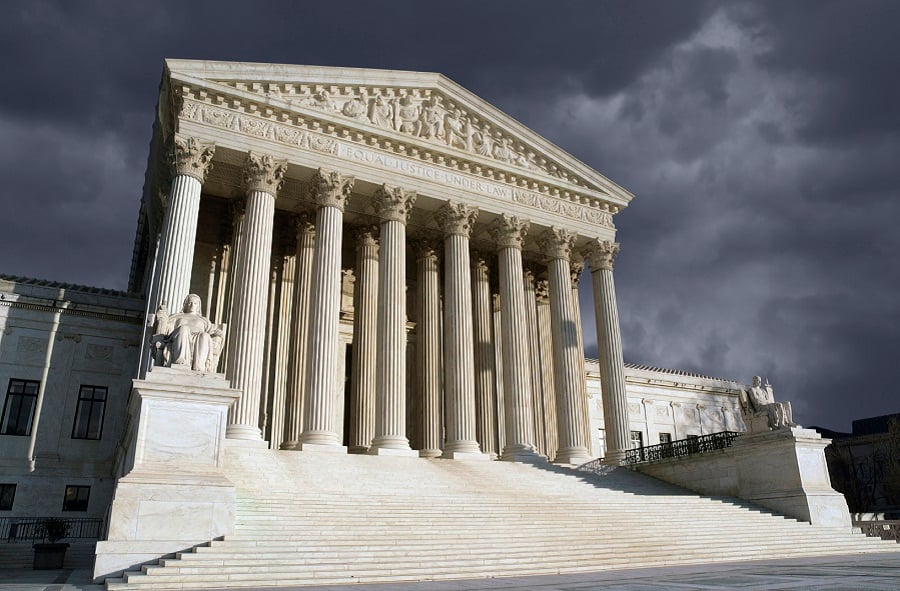A shake-up is in the cards for union retirees and their employers as a pivotal U.S. Supreme Court decision will likely lead many companies to reassess their retiree health care benefits.
On Jan. 26, the Supreme Court handed down a unanimous decision in M&G Polymers v. Tackett, a
lawsuit that focused on the presumption — known as the Yard-Man inference — that health care benefits provided through a collective-bargaining agreement vest once an employee retires and continue through that individual's lifetime.
The Supreme Court's
opinion, written by Judge Clarence Thomas, does away with the Yard-Man presumption in this case.
“When a contract is silent as to the duration of retiree benefits, a court may not infer that the parties intended those benefits to vest for life,” wrote Mr. Thomas in his opinion.
FAR-REACHING EFFECTS
The M&G Polymers case dates back to 2007, when retiree Hobert Tackett, a group of fellow retirees and the union that had represented them sued M&G in the U.S. District Court in Ohio. The plaintiffs claimed that the employer breached its collect-bargaining agreement by moving “a large part of the costs of those [health care] benefits” from M&G to the retirees.
According to the claim, the plaintiffs alleged that the company had either terminated or planned to terminate the benefits of retirees who couldn't pay the additional costs.
In 2012, the district court found in favor of the retirees. M&G appealed the decision to the 6th U.S. Circuit Court of Appeals, which upheld the lower court's decision. The Supreme Court took the case last November.
The case will have far-reaching effects, since many agreements that were drawn up in the 1960s and 1970s didn't directly place limitations on the provision of health care benefits, according to Ronald Mann, a professor at Columbia Law School. He had estimated that as many as 40% to 50% of collective-bargaining agreements are unclear on providing vested health care benefits.
In a recent entry on SCOTUSblog, Mr. Mann observed that the next step ahead for the M&G Polymers case is for
both parties to return to the court of appeals, which will read the contract and determine whether these employees get their benefits. The Supreme Court had boiled its decision down to a matter of contract interpretation, Mr. Mann wrote.
NEXT STEPS
A shake-up is expected health care benefits for the many union retirees who may have been planning on those benefits to last the remainder of their lives is likely. In light of the Supreme Court decision, employers will need to reassess their collective-bargaining agreements and see where they stand on giving retirees those health care benefits.
“The next step for all parties involved is going to be looking at these agreements and deciding whether further action is necessary,” said Alex Stevens, an attorney with Haynes and Boone. In addition to looking at their collective bargaining agreements, employers will have to examine their plan documents to determine whether there is language conferring lifetime benefits.
What's worth noting is that if an employer decides to make changes to the benefits provided to current retirees, it's a move that can be bargained with the union, but such negotiations aren't necessary, Mr. Stevens said.
“The alternative is to go and make the change unilaterally, and the consideration to weigh is the risk of litigation,” he added, which is exactly what happened in the M&G Polymers case. “That's a high possibility.”
LOWER EXPECTATIONS
For advisers working with retirees, the message of “nothing is guaranteed” continues to resonate.
“Great caution needs to be taken by anyone who is currently promised long-term benefits under any kind of unionization or trade contracts,” said Kevin J. Meehan, regional president at the Wealth Enhancement Group. Retiree health care benefits are under the same pressures that confound pension plans: Covered individuals are living longer lives, which add up to greater costs and employers are on the hook.
Mr. Meehan, who has worked with tradespeople, suggests coming up with a pool of assets to help cover additional health care costs in the event the benefits they were expecting are no longer there. For individuals who left the workplace before Medicare eligibility at 65, there are also the health care exchanges, he added.
Nevertheless, it's easier to make those course corrections for people who are still a decade or two away from retirement. The going will be much more difficult for those who have stopped working.
“Most people are living on fixed incomes, on pensions and are dependent on Social Security, so they don't have a lot of latitude,” Mr. Meehan said. “When a change like this comes, it's burdensome.”







